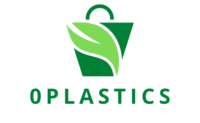In the global push for sustainability, the regulatory landscape is evolving to address the environmental impact of plastic pollution. Plastic-free alternatives are gaining prominence, prompting governments and regulatory bodies to enact legislation that fosters the adoption of eco-friendly practices. This article explores the intersection of legislation and ethics in the regulatory landscape for plastic-free alternatives, shedding light on how legal frameworks are shaping the transition to a more sustainable future.
1. Banning Single-Use Plastics:
Governments worldwide are taking decisive steps to combat plastic pollution by implementing bans on single-use plastics. Regulations prohibiting the production, distribution, and use of items like plastic bags, straws, and utensils incentivize the adoption of plastic-free alternatives. These measures contribute to reducing the environmental impact of disposable plastics.
2. Extended Producer Responsibility (EPR):
Extended Producer Responsibility (EPR) is a regulatory approach that places the responsibility for the entire lifecycle of a product on the producer. In the context of plastic-free alternatives, EPR encourages manufacturers to consider the end-of-life management of their products, promoting designs that prioritize recyclability, reusability, or compostability.
3. Mandatory Eco-Friendly Packaging Standards:
Governments are introducing mandatory standards for eco-friendly packaging to regulate the materials used in product packaging. Legislation may require businesses to use compostable or recyclable materials and limit the use of traditional plastics. These standards aim to minimize the environmental impact of packaging and promote the adoption of sustainable alternatives.
4. Incentives for Sustainable Practices:
To encourage businesses to adopt plastic-free alternatives, governments are offering incentives and rewards for sustainable practices. These may include tax breaks, subsidies, or grants for companies that prioritize environmentally friendly alternatives in their operations. Incentivizing sustainability fosters a positive environment for businesses to make ethical and eco-conscious choices.
5. Promoting Innovation in Sustainable Materials:
Regulatory bodies are actively promoting innovation in sustainable materials by supporting research and development initiatives. Legislation may include provisions for funding or grants to businesses and researchers working on creating and implementing new materials that serve as alternatives to traditional plastics.
6. Labelling and Certification Requirements:
To enhance transparency and empower consumers to make informed choices, some jurisdictions mandate labelling and certification requirements for plastic-free products. These regulations ensure that products claiming to be environmentally friendly adhere to specific standards. Certifications such as compostability, recyclability, or biodegradability may be required for certain products.
7. Waste Management and Collection Systems:
Governments are implementing comprehensive waste management and collection systems to address the disposal of plastic waste. Legislation may require businesses to participate in or fund recycling programs, creating a more circular economy. These initiatives contribute to the responsible disposal and management of plastic-free alternatives.
8. Corporate Social Responsibility (CSR) Reporting:
Some jurisdictions require businesses to include environmental considerations in their Corporate Social Responsibility (CSR) reporting. This includes disclosing efforts to reduce plastic usage, adopt sustainable alternatives, and contribute to broader environmental goals. Mandatory reporting promotes accountability and transparency in business practices.
9. Collaboration with Industry Stakeholders:
Regulatory bodies are fostering collaboration between government agencies, businesses, and environmental organizations to develop and implement effective regulations. Engaging industry stakeholders ensures that regulations are practical, feasible, and aligned with the goals of transitioning to a more sustainable and plastic-free future.
10. Global Cooperation and Harmonization:
Given the global nature of plastic pollution, some efforts focus on international cooperation and harmonization of regulations. Collaborative initiatives between countries and regions aim to create consistent standards for plastic-free alternatives, facilitating a unified approach to addressing the environmental challenges associated with plastic use.
In conclusion, the regulatory landscape for plastic-free alternatives reflects a growing recognition of the need for ethical and sustainable practices to combat plastic pollution. Through measures such as banning single-use plastics, implementing EPR, setting packaging standards, offering incentives, promoting innovation, requiring labelling, improving waste management, enforcing CSR reporting, fostering collaboration, and encouraging global cooperation, legislation is becoming a powerful catalyst for driving positive change. As governments and regulatory bodies continue to refine and expand these frameworks, businesses and consumers alike are increasingly propelled toward a more ethical and sustainable approach to plastic use.
